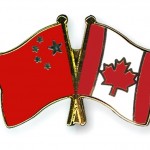Foreign policy agreement ignores First Nations interests
 MUNSEE DELAWARE NATION – The Anishinabek Nation supports the Hupacasath First Nation in its legal battle against the Canada‐China Foreign Investment Promotion and Protection Agreement (FIPA). FIPA was tabled in the House of Commons last September without any First Nations consultation and accommodation. The agreement affects puts the future of natural resources in Canada, and also ignores treaty relationships that Canada has with First Nations.
MUNSEE DELAWARE NATION – The Anishinabek Nation supports the Hupacasath First Nation in its legal battle against the Canada‐China Foreign Investment Promotion and Protection Agreement (FIPA). FIPA was tabled in the House of Commons last September without any First Nations consultation and accommodation. The agreement affects puts the future of natural resources in Canada, and also ignores treaty relationships that Canada has with First Nations.
Grand Council Chief Patrick Wedaseh Madahbee has affirmed the Anishinabek Nation’s opposition to FIPA.
“Every time we turn around Canada is doing something to undermine First Nation rights and jurisdiction then they wonder why the majority of First Nations oppose federal conservative policies”, Madahbee said. “I don’t know who they’re consulting, if anyone, but it sure isn’t the Anishinabek First Nations”.
Chief Isadore Day Wiindawtegowinini from Serpent River First Nation and also the Anishinabek Robinson‐Huron Regional Chief described the situation as going against international laws.
“Our treaties are internationally credible and just as valid as any other Nation to Nation relationship in the world. Canada has no right to sell or assume jurisdiction over resources in the Lake Huron Region or any Anishinabek region. Every piece of land and every ounce of water are protected by treaty rights, and our treaty rights protect our inherent rights and these rights are recognized by the United Nations,” said Chief Day.
The Canada‐China agreement ignores treaties that were agreed to prior to Canada becoming a country and in essence, FIPA undermines the Canada‐First Nation treaty relationship.
The United Nations Declaration on the Rights of Indigenous Peoples (UNDRIP) Article 32 says: “States shall consult and cooperate in good faith with the indigenous peoples concerned…in order to obtain their free, prior and informed consent prior to the approval of any project affecting their land or territories and other resources, particularly in connection with the development, utilization or exploitation of mineral, water or other resources”, both Canada and China are among the state governments that have endorsed UNDRIP.
“Canada is a colonial government and the Canadian Government has not consulted with the rights holders, which are the First Nations who hold the legal, underlying title to all lands, waters and resources across the country,” Madahbee said.
“There are Supreme Court decisions that explicitly direct the government to consult and accommodate First Nations in instances such as this. The United Nations continually acknowledges our rights through international forums, but the question remains: Is Canada above the law when it comes to First Nation rights? From everything we’ve seen over the years it would appear as though First Nations have no real protection in Canada’s constitution, Canada’s legal system, or in the framework of international declarations. Until they start respecting our rights we have no reason to believe that equality and democracy exists in Canada and the international community should be paying attention.”


